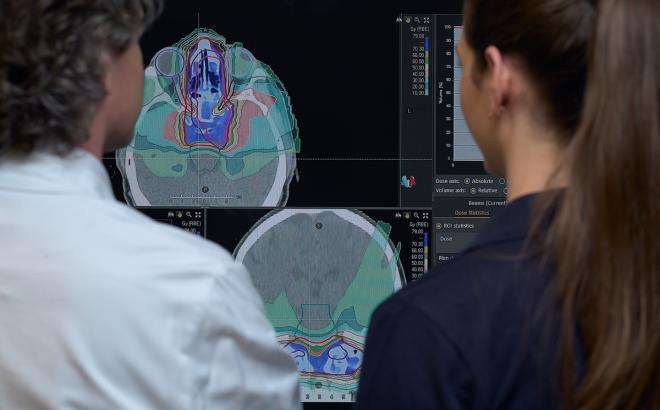KL study indicates: More information and better follow-up care needed after adverse pregnancy outcomes
A study by Karl Landsteiner University of Health Sciences (KL Krems) highlights the urgent need for improved care and information for women with hypertensive disorders of pregnancy or gestational diabetes.
The results show that more than two-thirds of women diagnosed with preeclampsia or gestational diabetes did not receive sufficient information about the long-term risks of adverse pregnancy outcomes. These findings emphasize the gap in care for women at increased risk of cardiovascular and chronic kidney disease.
Adverse pregnancy outcomes such as hypertensive disorders of pregnancy or gestational diabetes are associated with an increased risk of being diagnosed with cardiovascular disease, hypertension, chronic kidney disease, and type 2 diabetes.
The survey of 161 women included in this study showed that more than two-thirds of women who had hypertensive disorders of pregnancy or gestational diabetes during pregnancy did not receive adequate information about the risks of adverse pregnancy outcomes. This leaves a significant information gap for women at risk of cardiovascular and kidney disease. The study's authors emphasize the need to optimize the advice and care provided by health professionals to support women adequately after pregnancy complications.
Dr Birgit Pfaller-Eiwegger, a consultant at St. Pölten University Hospital - teaching and research location of KL Krems - and researcher at KL Krems, emphasises the results: "These show that less than a third of all women with adverse pregnancy outcomes received appropriate counselling," the head of the study continues. "In addition, only half of the women with high-risk pregnancies received recommendations on how to adapt their lifestyle, even though this could reduce the risk of cardiovascular disease later in life. This also means that only 14% of the women concerned had a follow-up examination." In over 85% of women who had adverse pregnancy outcomes with a risk of cardiovascular disease later in life, there was no long-term follow-up. Even appointments with general physicians were attended by less than 40% of women with high-risk pregnancies within the first few months after the birth.
The study recommends improved health professionals' training to raise awareness of the long-term risks of adverse pregnancy outcomes. Integrating structured counseling plans into healthcare practice could make a significant contribution to preventing and improving healthcare for women at increased risk of cardiovascular and chronic kidney disease. In addition, Dr. Birgit Pfaller-Eiwegger initiated the establishment of an outpatient clinic for women at increased risk of cardiovascular and kidney disease after pregnancy (Cardio Metabolic Renal Women Postpartum Care Program) at St. Pölten University Hospital in 2020 as part of the KL Krems research programme “Forschungsimpulse” funded by the state of Lower Austria.
These findings illustrate the research focus of KL Krems, which clearly emphasizes interdisciplinary approaches that are important for health policy.
Original publication: Knowledge and care regarding long-term cardiovascular risk after hypertensive disorders of pregnancy and gestational diabetes. B. Pfaller, C. Busvine, A. Rosenauer, A. Schenzel, C. Fournier, I. Aringer, A. Lösch, M. Wiesholzer, S. Schubert & B. Wichert-Schmitt. Wien Klin Wochenschr. https://kris.kl.ac.at/en/publications/knowledge-and-care-regarding-long-term-cardiovascular-risk-after-




